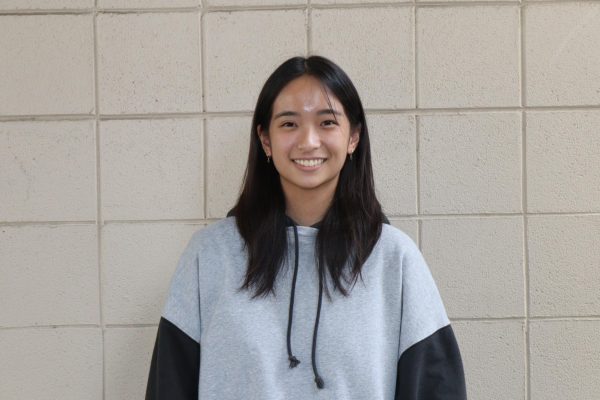“What sparked your passion in political science?” junior Melanie Lee asked junior Anushka Tadikonda during an interview about her interest in political science.
Tadikonda responded by explaining the key role a history teacher played in calling her attention to the Black Lives Matters movement in eighth grade.
This video was one of eight on Lee’s nonprofit organization Career Compass, which she started in August to help students discover their interests by listening to fellow high school students’ experiences.
The organization is run by Lee and sophomore marketing head Jena Lew, who aim to post on Instagram and YouTube at least once a week.
“I was thinking about how to start projects about things I’m interested in, and I realized I had a lot of different areas of interests like marketing, journalism and art,” Lee said. “I wanted to talk to different people about how they discovered what they wanted to do and how they narrowed it down.”
During interviews, Lee asks questions about the interviewee’s interest and any advice they have for others pursuing a similar career, including passions, motivations and current projects. Some discuss internship opportunities. Others discuss how AI can be implemented into their career interests.
After Lee schedules and records the interview, she communicates with Lew to split the work between them. Typically, Lew edits the footage together on her computer, spending one to two hours editing the video, while Lee spends two hours designing graphics.
“It’s really cool to show what students are passionate about and what they’re doing to reach their goals,” Lee said.
With each YouTube video around four minutes long, Lee and Lew initially struggled to gain more exposure, averaging around 40 views per video. By switching to Instagram reels that included shortened clips from the interviews, the videos were able to reach a larger audience, averaging 1,300 views per reel.
Lee also found that reaching a wider audience not only helped people learn about different fields, but also allowed students to share their passion and experience.
“I started interviewing my friends and their passions, and the reels and videos allowed more people to be interested in getting interviewed,” Lee said. “Jena and I plan to reach out to a more diverse group of people to interview people of different ages and opinions.”
While she started with students, Lee began interviewing random people at Westfield Valleyfair and gained a wide perspective on adults working in industry. Through interviewing people who grew up outside of Saratoga, Lee said she realized the abundant amount of resources and opportunities here. Lee also noticed how growing up in a tech industry influenced many Saratoga students to pursue technology fields.
“It was super inspiring and eye-opening to realize not everyone has the luxuries to do what they want to do in the future,” Lee said.
Lee said she found it hard to have a consistent schedule coordinating interviews with various people. While she considered having people record themselves, she decided against this.
“I feel like having a conversation with someone is more valuable, as I can ask questions I didn’t write down and have them elaborate on stuff I want to learn more about,” Lee said.
Tadikonda noted the conversation-like interview allowed her to better elaborate on certain aspects of her interest in political science.
“The best way to understand what you’re passionate about is to talk about it, as it helps you pinpoint where your passion lies,” Tadikonda said. “When you talk to someone and see their reaction about your passion, it really helps you understand what you specifically love.”
In the upcoming months, Lee and Lew plan to reach out to a wider range of ages, such as kids, community college students and parents.
Lee and Lew have also been working with College and Career Center counselor Brad Ward to create a workshop for parents to talk about their jobs and how they got there during school tutorials.
Lee hopes their organization becomes an online platform for anyone to gain some guidance.
“We want to help people who don’t have the opportunities to figure out what they want to do, either by pointing to specific online classes or giving advice,” she said. “It’s cool to have a network of students and professionals to connect with each other on a platform to ask questions and have discussions.”
After interviewing 11 juniors, Lee learned there isn’t a specific, universal eye-opening experience where students discover their passion and stick through it. While she initially thought the students were set on one passion, she learned that multiple hobbies could add to passions.
For instance, junior Anisha Rahut, who is interested in computer science, has found ways to combine her passion with her other interests. Rahut initially focused on computer science, but began taking an interest in medicine and found ways to implement coding in biomedical engineering.
After learning from the students she interviewed, Lee became interested in interdisciplinary studies, a major that allows students to combine different studies.
“I’ve realized that while a lot of people know what they want to do, they are also interested in other things,” Lee said. “You don’t have to know exactly what you want to do, and it’s OK not to.”































